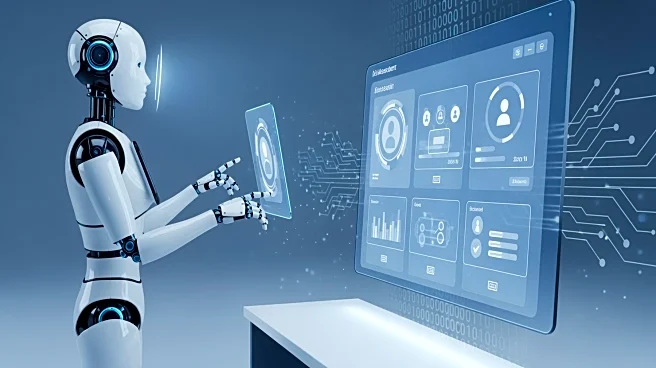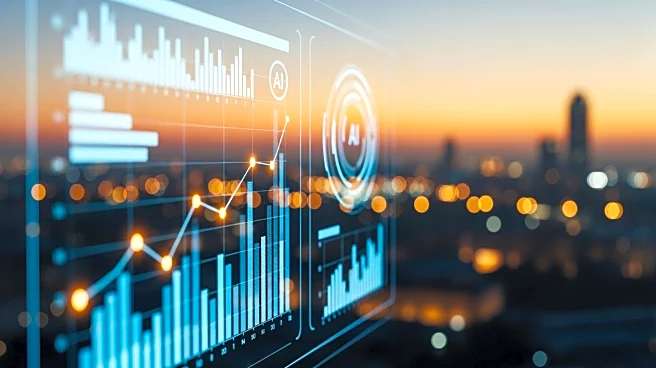What's Happening?
Companies are increasingly adopting artificial intelligence (AI) to conduct job interviews, a trend that is reshaping the hiring process. According to a recent discussion on NPR's 'The Indicator from Planet Money,' AI systems are being used to interview potential
employees, offering a new dynamic to the traditional interview process. The program highlighted a case where an AI job recruiter named 'Anna' conducted an interview, showcasing how AI can potentially streamline and standardize the hiring process. This development is part of a broader trend where AI is being integrated into various aspects of business operations, including recruitment.
Why It's Important?
The use of AI in job interviews could have significant implications for both employers and job seekers. For employers, AI offers a way to reduce biases that might occur in human-led interviews, potentially leading to a more diverse and inclusive workforce. It also allows for the processing of a larger number of candidates in a shorter time, increasing efficiency. For job seekers, however, this shift raises concerns about the loss of personal interaction and the potential for AI to misinterpret human nuances. The broader impact on the job market includes the transformation of HR roles and the need for new skills to manage and interpret AI systems.
What's Next?
As AI continues to be integrated into the hiring process, companies and job seekers alike will need to adapt. Businesses may need to invest in training for HR professionals to effectively use and manage AI tools. Job seekers might need to develop new strategies to prepare for AI-led interviews, focusing on how to effectively communicate with AI systems. Additionally, there may be regulatory developments as governments consider the implications of AI in employment practices, potentially leading to new guidelines or legislation to ensure fairness and transparency.
Beyond the Headlines
The ethical implications of AI in job interviews are significant. There is a need to ensure that AI systems are designed and used in ways that are fair and do not perpetuate existing biases. This includes transparency in how AI systems make decisions and the criteria they use to evaluate candidates. Furthermore, the cultural shift towards AI in the workplace may influence how companies are perceived by the public, affecting their brand and employee satisfaction.















